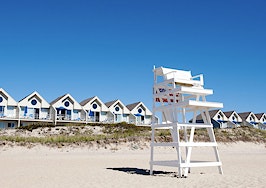Nearly 2 million current renters could become homeowners with the opportunity to move to another metro afforded to them by working remotely, according to a new study released Tuesday by Zillow.
The study by the Seattle-based company’s economic research team found that roughly 2 million renters could afford monthly payments on the typical starter home in the U.S., but not in their current metro.
“If remote work becomes a bona fide long-term option especially with the pandemic, that could reshape the U.S. housing market by opening up homeownership to people renting in expensive parts of the country,” Zillow economist Jeff Tucker said in a statement. “However, it’s unclear how many people would make the move to buy their first home.”
“Proximity to work is just one of the factors people consider when choosing where to live,” Tucker added. “Other factors may keep them from moving, including proximity to friends and family, cultural and natural amenities and their kids’ schools.”
The more expensive the metro, the greater number of potential new homeowners, the study found. In San Francisco, for example, 22 percent of renters priced out of buying a home in their metro could afford monthly payments on a typical U.S. starter home.
Most renters don’t have to stray too far to find affordability either, the study found. More than 10 percent of renters who couldn’t afford to buy in San Francisco, could afford a starter home within the area.
Certain cities like Pittsburgh, Pennsylvania; El Paso, Texas; and Rochester, New York, have more affordable starter homes than the country as a whole, so prospective buyers will find better deals in their own metro, rather than looking elsewhere.
The COVID-19-fueled remote work trend is likely to continue into the near future, according to Zillow, which has told its own employees they can work remotely indefinitely. A previous poll from the company found that, of those that would continue working from home, 66 percent of renters said they would consider moving.
Of the nearly 2 million renter households that could unlock homeownership opportunities through remote work, nearly half of them are millennials.










